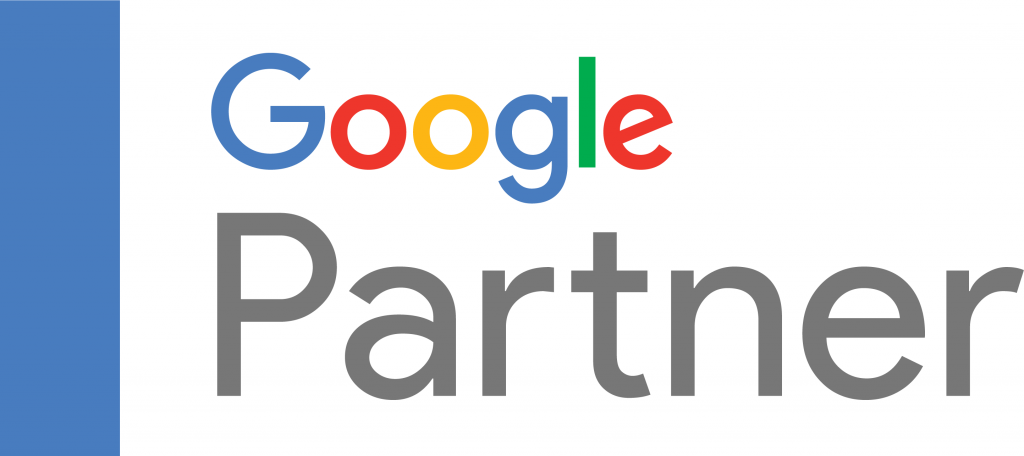Generative Engine Optimisation: How to take advantage of GEO & what it means for Search Engine Optimisation
From the entry of artificial intelligence and Large Language Models (LLMs) onto the public scene in November 2022, the uptake of platforms such as ChatGPT, Deepseek, Google Gemini represents the very first time a significant change in the behaviour of how people seek out information since 1990’s, when Google search engine was launched.
ChatGPT and other LLMs now make up almost 5% of all searches combined between LLMs and search engines, and this is forecasted to increase to 10% or more by the end of 2025. In contrast, Google for the first time slipped below 90% global market share for the first time since 2015, reflecting the rapid search behaviour shift.
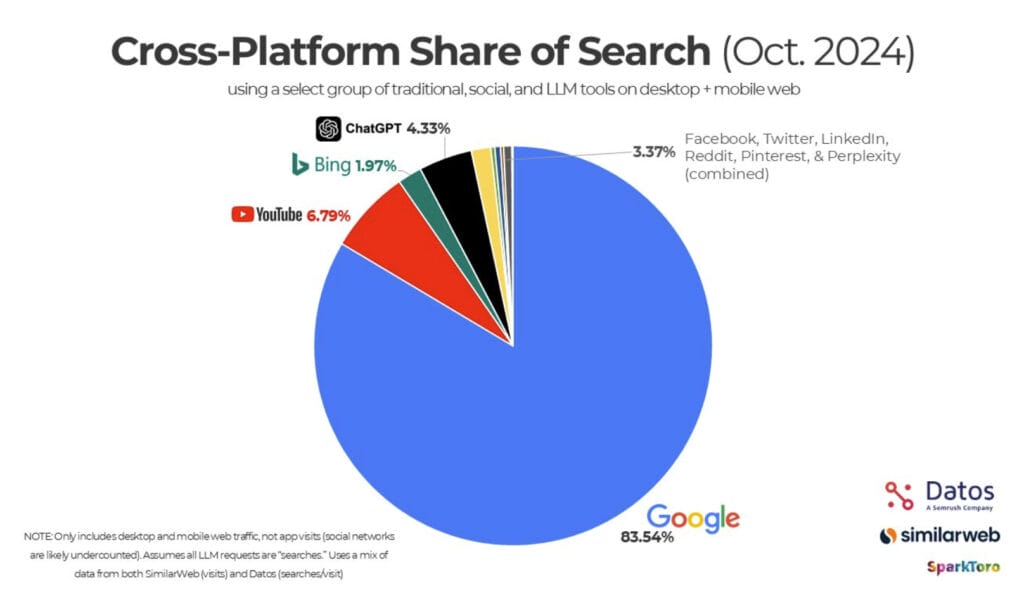
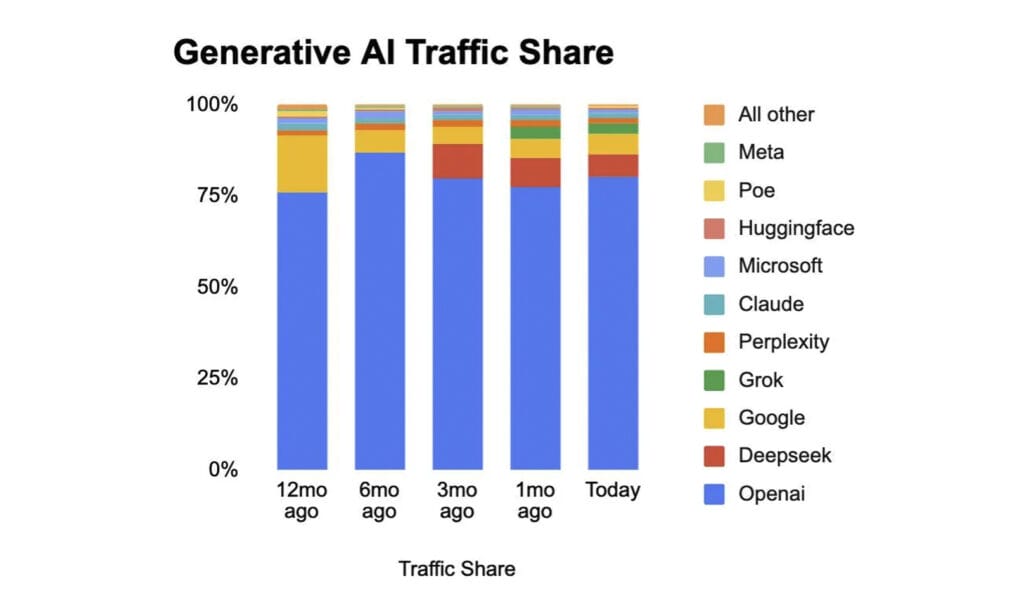
What is GEO, and how does it differ from SEO?
Generative Engine Optimisation (GEO) (currently also referred to in various forms such as Answer Engine Optimisation, AI SEO, AI Search, ChatGPT SEO etc.) is the practice of optimising for the visibility of a brand within AI-driven LLMs.
Given the increasing ability for GEOs to provide detailed & accurate information on any query, this has caused the number of unique search queries to increase, leading to the formation of the Query Fan-Out Technique.
Google explains the Query Fan-Out Technique as follows:
“AI Mode uses our query fan-out technique, breaking down your question into subtopics and issuing a multitude of queries simultaneously on your behalf. This enables Search to dive deeper into the web than a traditional search on Google, helping you discover even more of what the web has to offer and find incredible, hyper-relevant content that matches your question.”
The second difference between GEO and SEO is that there has also been an observed increase in engagement, but against a lower volume of clicks, which can cause alarm bells, particularly within companies that benchmark success against traffic levels. This is creating uncertainty given the current limited reporting capabilities around GEO, one which I sincerely hope they address as soon as possible.
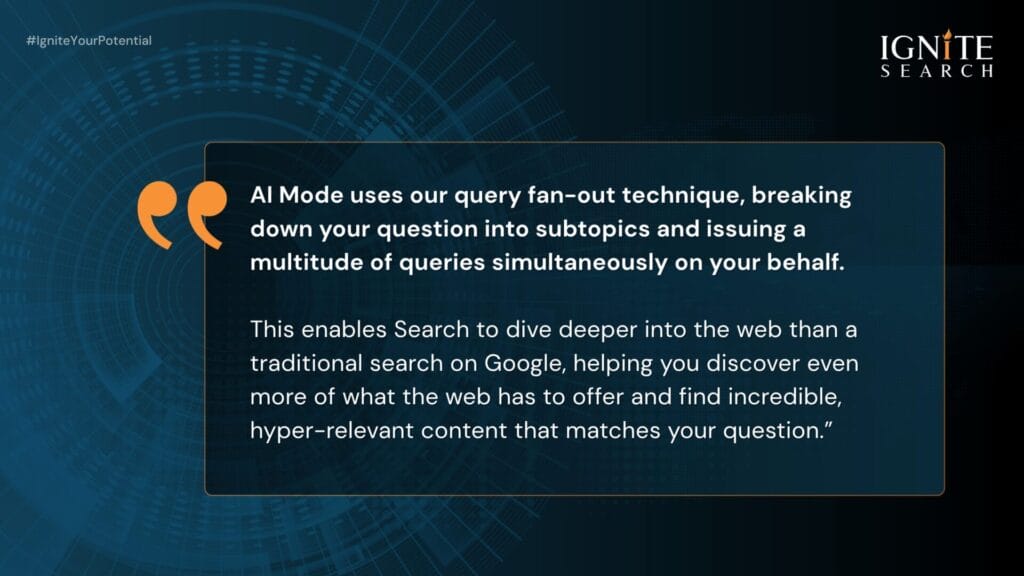
Whilst OpenAI is yet to openly disclose their data sources breakdown or their algorithm, on how they generate prompts, there have been numerous anecdotal observations, including those with our own client projects, that if a brand has a strong visibility presence within search engines, particularly Google, this is also reflected in the LLM prompts.
That is, if you are optimising for meaningful and helpful content, not just for the search engines (now generative engines) but also for the humans, then you will go far in your journey of GEO success.
How do you optimise for GEO?
The following are three recommendations that will help you with preparing your website for greater GEO success.
1. Fire up those FAQs
More than ever, ensure that your Frequently Asked Questions (FAQs) are comprehensive, in-depth & represented on key landing pages and not just on the dedicated, sometimes tokenistic, FAQ page. You can easily build a list by doing your own research (DYOR) or even better, sourcing it from your sales team, which in turn will be from customers directly.
2. Supercharge the About Us page
Ensure that your About us page has a detailed text profile on your key team members, and not just a profile picture. If you have won awards (trust symbols) or have a strong reputation online via reviews (social proofing), talk in detail about it, and why it matters to a prospect.
3. Ambassadorise UGC content
Creating multiple ecosystem points of opportunities where User Generated Content (UGC) around your offerings are not only enabled, but encouraged, and accessible by the LLMs. Think forum sites, review sites, discussion boards and more.
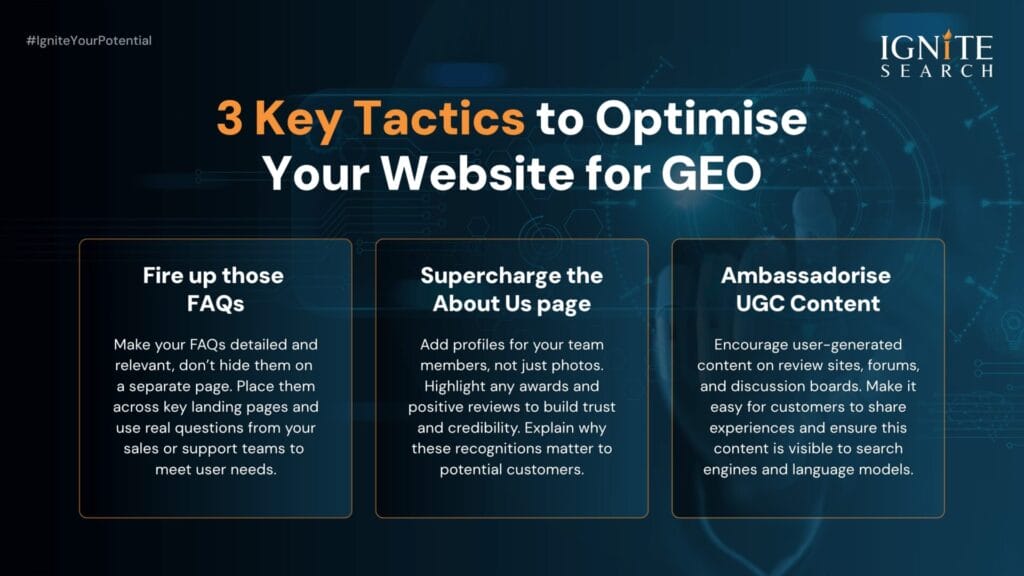
How to approach GEO moving forward
The advent of GEO as a distinct marketing discipline is very much here, and although it may represent a once in a decade opportunity to potentially leapfrog your competition in the search space, the reality is a little more nuanced, and the most important takeaway is that you need to respect that the GEO landscape is at this juncture fast-evolving.


